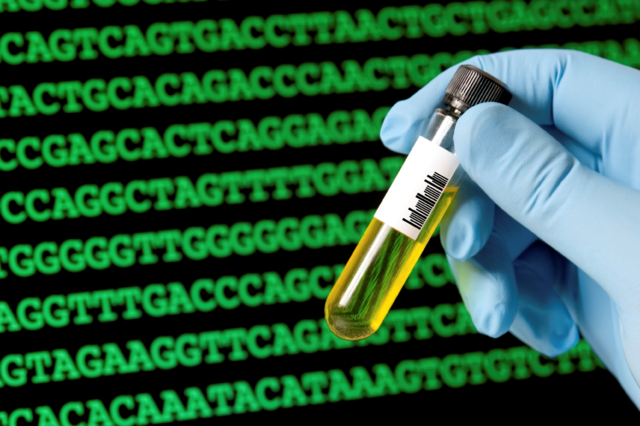Pharmacogenomic Testing: Could it Reduce Health Care Cost?
A relatively new type of drug testing could reduce health care costs. This type of testing is known as pharmacogenomic testing. It looks at how the genes a person inherits affects how medications works in his or her body.
Many things can affect how drugs work in the body. Someone’s size can be a factor, for example, as a large person needs more of a drug than does a small person. A person’s diet can also affect how well his or her body absorbs and uses medications.

Genes can also affect how a person’s body responds to drugs. Differences in genetic makeup between people influences what their bodies do to a drug and what a drug does to their bodies. A person’s genetic makeup may cause slow metabolism of medications, for example, and this can cause the drugs to accumulate to toxic levels in the body. Other people metabolize drugs so quickly that drug levels never get high enough to provide a therapeutic effect.
About Pharmacogenomics
In pharmacogenomics, scientists study the genetic differences that affect the response to drugs. The word “pharmacogenomics” is a combination of the word’s pharmacology and genomics; pharmacology is the study of the uses and effects of medications, while genomics is the study of genes and their functions. The aim of pharmacogenomics is to develop safe, effective medications and doses tailored to an individual’s genetic makeup.
Pharmacogenomic testing helps researchers get a better understanding of the relationship between genetics and drug response. This understanding ultimately leads to treatments that work better and cost less.
Most of the medications currently available are “one size fits all,” but these drugs do not work the same way for everybody due to genetic differences. These inherited differences can make it difficult to predict who will benefit from a drug, who will not respond at all, and who will suffer negative side effects. Incorrect predictions can lead to prescribing drugs that do not work, work poorly, or worst of all, cause adverse side effects.

The Food and Drug Administration (FDA) tracks adverse drug reactions and issues “black box warnings” for medications that have the potential for severe side effects associated with genetic predispositions and other causes. These warnings, which apply to more than 200 drugs, help doctors choose the right medications. In some cases, the black box warnings contain genomic information that alerts doctors to the potential risk of adverse reactions and provides dosing instructions according to pharmacogenomic testing results.
Pharmacogenomic testing can reduce health care costs by helping doctors prescribe medications that those patients who are genetically predisposed to benefiting from the drug. This testing can also reduces the risk of adverse events in patients with a certain genetic predisposition.
Negative side effects, also known as adverse drug reactions or adverse drug events, are a significant cause of hospitalizations and death. Adverse drug reactions lead to approximately 1.3 million emergency department (ED) visits and 350,000 hospitalizations every year, according to the Centers for Disease Control and Prevention (CDC). The FDA says that adverse drug events may be the fourth leading cause of death in the United States, causing more than 106,000 deaths annually.
Adverse drug reactions are dangerous, but they are also costly. Adverse drug events cost the nation about $3.5 billion in excess medical costs every year. These drug reactions affect about 2 million hospitalizations each year and prolong these hospital stays by 1.7 to 4.6 days, which significantly adds to the cost of hospital care. Outside the hospital, adverse drug reactions result in more than 3.5 million visits to doctor offices, approximately a million emergency department visits and around 125,000 admissions to the hospital. More than 40 percent of the costs related to adverse drug reactions occurring outside the hospital may be preventable.
About Pharmacogenomic Testing and its Benefits
Researchers are using information from the Human Genome Project to investigate how genetics affects the body’s response to medications. The results help researchers to predict whether a drug will work effectively for a particular person, and to help prevent adverse drug events.

The test requires a small blood or saliva sample. Laboratory technicians perform tests that look for changes or variants in one or more genes, which can affect your body’s response to certain medications.
Pharmacogenomic testing evaluates the genetic factors that affect how your body metabolizes medications. The information gained from the test helps your doctor determine if a particular medication is right for you, calculate the correct dosage to adjust for your metabolism, and to help predict whether you could experience serious side effects from the drug. It can also save money.
Medical and finance expert Frank Magliochetti explains;
Healthcare spending in the United States reached $3.5 trillion in 2017, rising by 3.9% year-on-year and accounting for 17.9% of gross domestic product (GDP), according to data from the Centers for Medicare and Medicaid Services (CMS). Independent federal actuaries estimate that the amount climbed to $3.65 trillion in 2018, and the Organization for Economic Co-Operation and Development (OECD) ranks the United States as the country with the highest health expenditure per capita. According to CMS projections, US spending will continue to grow at an average rate of 5.5% annually through 2026, when it is expected to reach $5.7 trillion and account for 19.7% of GDP. These massive and steadily rising costs are a source of concern for the government, which is constantly exploring means of reining in healthcare expenses, including through preventive measures and investment in research projects. Among the most promising new developments is pharmacogenomic testing, which involves studying the impact of people’s genetic makeup on their response to drugs so that effective and efficient treatment regimens can be devised
Frank Magliochetti owes his professional success to his expertise in two areas: medicine and finance. After obtaining a BS in pharmacy from Northeastern University, he stayed on to enroll in the Masters of Toxicology program. He later specialized in corporate finance, receiving an MBA from The Sawyer School of Business at Suffolk University. His educational background includes completion of the Advanced Management Program at Harvard Business School and the General Management Program at Stanford Business School. Frank Magliochetti has held senior positions at Baxter International, Kontron Instruments, Haemonetics Corporation, and Sandoz. Since 2000, he has been a managing partner at Parcae Capital, where he focuses on financial restructuring and interim management services for companies in the healthcare, media, and alternative energy industries. Earlier this year, he was appointed chairman of the board at Grace Health Technology, a company providing an enterprise solution for the laboratory environment.
- https://www.fda.gov/drugs/scienceresearch/ucm572698.htm
- https://www.fda.gov/drugs/scienceresearch/ucm572698.htm
- https://www.cdc.gov/medicationsafety/basics.html
- https://www.fda.gov/drugs/developmentapprovalprocess/developmentresources/druginteractionslabeling/ucm110632.htm
- https://health.gov/hcq/ade.asp
Mr. Frank Magliochetti MBA
Managing Partner
Parcae Capital
www.parcaecapitalcorp.com
www.frankmagliochetti.com





